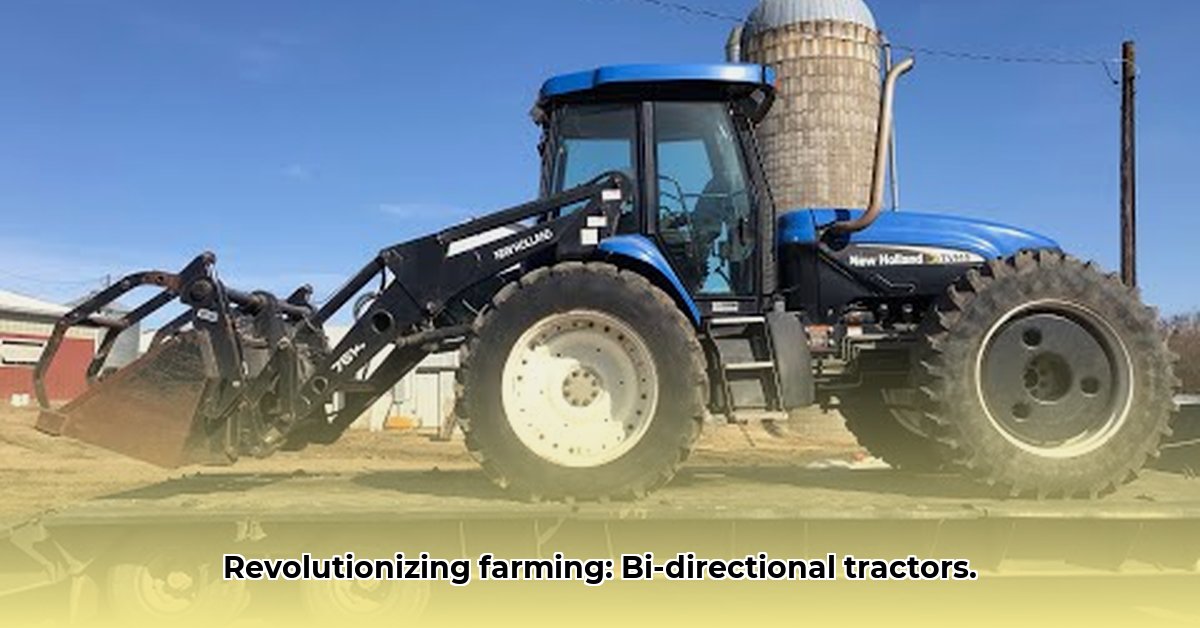
Better Tractors USA: A Case Study in Sustainable Agriculture
Bi-directional tractors represent a potential revolution in sustainable farming, promising increased efficiency and reduced environmental impact. Better Tractors USA (BTUSA) is at the forefront of this innovation, but the true extent of their sustainability claims necessitates a thorough examination. This case study analyzes BTUSA's technology, assesses its potential environmental benefits, and proposes actionable recommendations for the company, farmers, and policymakers. For used tractor values, check out this helpful resource: Used Tractor Values.
Better Tractors USA: A Company Overview
BTUSA positions itself as a leader in sustainable agricultural technology, aiming to enhance farming productivity while minimizing environmental footprints. While specific founding details are unavailable, their focus is clearly on the development and manufacturing of high-performance, maneuverable bidirectional tractors. Their flagship product, the BASIC 175, embodies this ambition. However, the company’s overall market share and financial performance require further investigation to gain a complete picture of their place within the broader agricultural technology landscape.
The BASIC 175: A Technical Deep Dive
The BASIC 175’s defining feature is its quad-steer system, allowing for exceptional maneuverability (a significant departure from traditional steering systems). This enhanced control translates to tighter turning radii, minimizing field passes and reducing soil compaction. BTUSA also emphasizes the tractor's ergonomic design for operator comfort and reduced fatigue. However, detailed specifications regarding engine power (claimed as 170 horsepower), fuel efficiency, and other critical operational metrics remain unavailable in readily accessible sources. Without independently verified data, these claims need further substantiation.
Sustainability Assessment: Data Gaps and Opportunities
BTUSA suggests that the BASIC 175's reduced field passes lead to less soil compaction and potentially lower fuel consumption. These are significant potential benefits for sustainable agriculture. However, these claims currently lack robust quantitative support. Crucial data—including precise fuel efficiency figures (liters/hectare), greenhouse gas (GHG) emissions (kg CO2e/hectare), and a comprehensive lifecycle assessment (LCA)—are missing. A robust LCA would encompass all environmental impacts, from manufacturing and transportation to operational use and eventual disposal. This data vacuum hinders a definitive assessment of the tractor's true environmental performance.
Comparative Analysis: A Need for Standardized Metrics
A comparative analysis against competing tractors (both conventional and bidirectional) is currently impossible due to a lack of standardized testing protocols and publicly available comparative data on fuel efficiency, emissions, and operational costs. The absence of uniform metrics makes it difficult to objectively assess the BASIC 175’s overall sustainability performance relative to its competitors within the market.
Actionable Recommendations: A Call for Transparency and Data-Driven Decisions
To fully realize the potential of bidirectional tractors and foster sustainable agricultural practices, several key actions are needed:
BTUSA: Conduct and publicly release independently verified data on fuel efficiency, GHG emissions, and a comprehensive LCA for the BASIC 175. Participate in standardized testing to facilitate comparison with competing models.
Farmers: Demand transparent performance information from manufacturers. Consider participating in independent field trials to gather real-world operational data.
Government Agencies: Establish standardized testing protocols for agricultural machinery to allow for fair comparisons. Provide incentives for the adoption of demonstrably sustainable technologies. Fund independent research to evaluate the long-term environmental and economic impacts of bidirectional tractors.
Environmental NGOs: Advocate for transparent reporting of sustainability data from agricultural machinery manufacturers. Conduct independent assessments of the environmental impacts of bidirectional tractors using standardized methodologies.
Conclusion: The Path to Sustainable Farming
Bi-directional tractors offer promising advancements in agricultural technology. However, translating their potential into demonstrably sustainable practices hinges on the availability of verifiable data. Increased transparency, standardized testing, and collaborative research are essential to establish the true environmental and economic benefits of these machines. Only then can farmers and policymakers make informed decisions that drive the agricultural sector toward a more sustainable future.
References:
[1] BTUSA Website (URL to be inserted here) – This reference needs a functional URL.